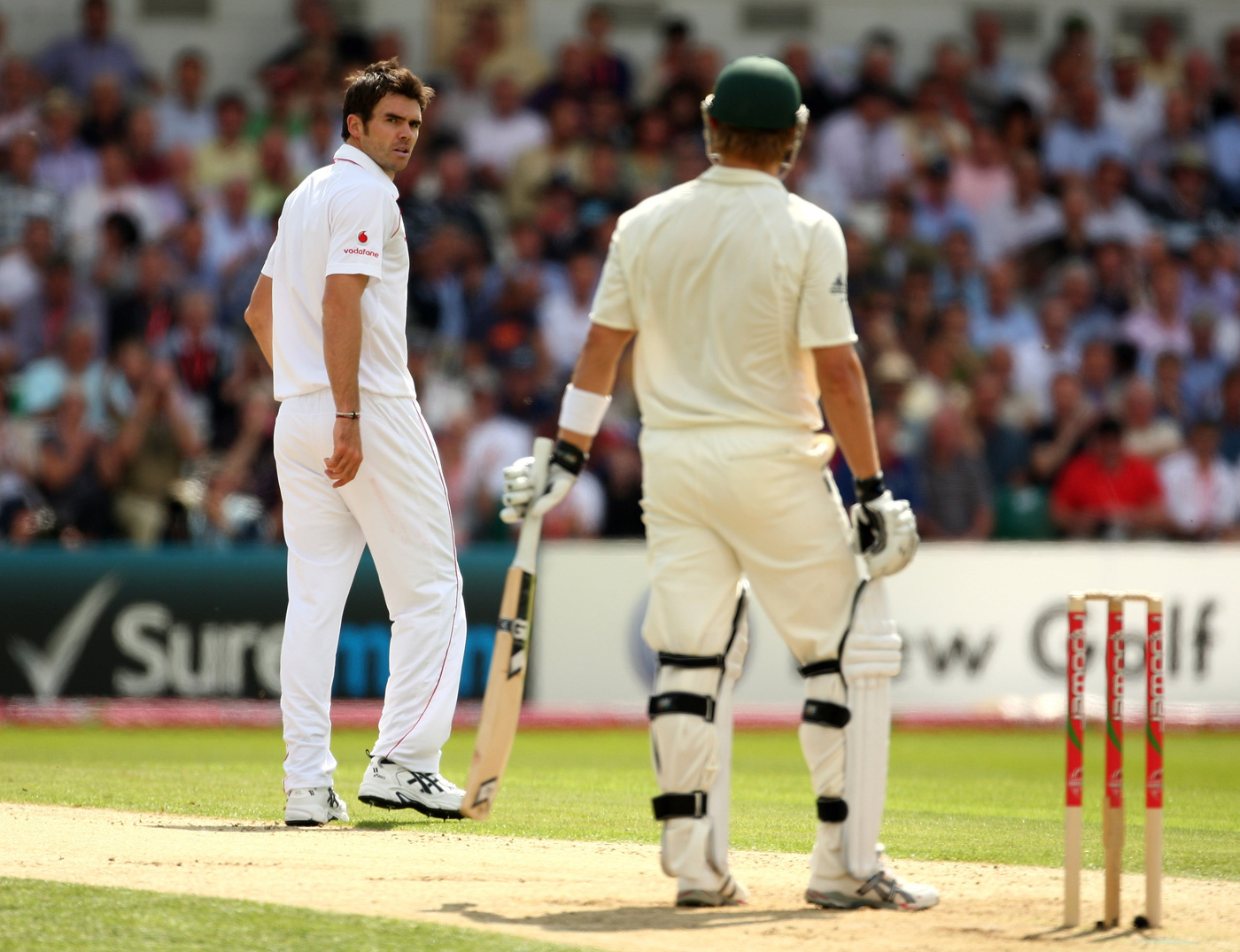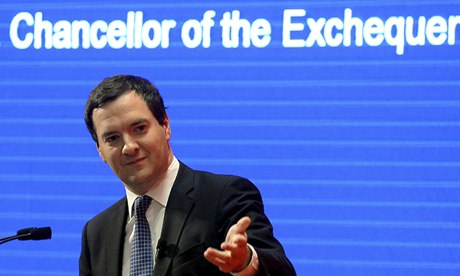It's time to turn the stump mikes all the way up, and leave them that way
December 4, 2013

| |||
Taking issue with a pair of sage judges of humankind like George Orwell and Mike Brearley might not be the wisest intellectual venture, but into the valley of the ridiculed here I come.
In his 1945 essay "The Sporting Spirit", Orwell decried the competitive arts as "war minus the shooting" (international sport, that is, not sport per se; his incandescent response to a UK football tour by Moscow Dynamo is so habitually misquoted). Given the quotidian deluge of pain inflicted in its name, not to mention the occasional death, "war minus the looting" might be nearer the mark. Or better yet, as the latest renewal of Ashes mania appears bent on reaffirming, "war plus the loathing".
-----Also Read
Doesn't Sledging Hurt Anyone?
-----
-----Also Read
Doesn't Sledging Hurt Anyone?
-----
More recently, this very week, Brearley wrote a typically astute article for the Times, lamenting the intolerably abrasive atmosphere of the Brisbane Test, observing that there was "a narrow line" between acceptable and unacceptable behaviour. This struck me as being overly generous.
What distinguishes sport from every other branch of the entertainment industry is its relationship with its audience, enforcing as it does an acute awareness of its constant (and constantly annoying) dancing partner - sportsmanship. Nobody talks about actorship or poetship or dancership; musicianship and authorship relate, respectively, to craft and rights, not conduct. But what do we actually mean by sportsmanship? It certainly tells us something about its complexities that no feminist I know has ever demanded that we refer to sportspersonship, let alone sportswomanship.
It seems reasonable to define this slippery virtue, broadly, as the willingness, even determination, to a) win fairly, honestly and modestly, and b) lose gallantly, graciously and, almost needless to add, unintentionally. Liable as they are to be copied in playgrounds, backyards and parks, any antic that even smacks of cheating or disrespect sets the most erroneous of bad examples, primarily to the impressionable young millions who invest so much of their emotion in, and glean so much of their joy from, the curious world of ballgames.
Sure, the older and wiser we get, the more we understand the unique nature of athletic battle and its impact on even the coolest of tempers. On the other hand, sports watchers of all ages are resolutely intolerant of relatively trifling misdemeanours such as time-wasting, feigned injury or even a withheld handshake. And woe betide those perceived to be cowardly, whether in the form of a tackle shirked, a risk untaken or an opponent tongue-lashed. And rightly so.
That's why, even as we grow ever more inured to violent images, and admiring of murderous on-screen drug lords and mobsters, sledging still disturbs disproportionately - because it tells us the perpetrator has given up trying to prevail through skill. There's banter and there's sledging, of course, and it is to the spite-rich, wit-free latter that one takes exception. To many, the Brisbane Test was sickening, not because of the savagery of the bowling but the vile viciousness of the verbals. One of the odder things about the three-for-the-price-of-one product cricket has become is that the least frantic variety is the likeliest to arouse indefensible behaviour.
Before we get to the remedy, a dose of perspective seems in order. Amid the same Gabba gabfest that saw Messrs Anderson and Clarke reiterate how far cricketers are prepared to go - and always have been - in quest of an edge, the media ridicule meted out to Jonathan Trott was equally if not more offensive. How sobering, moreover, to open a magazine that weekend and snuggle up with cuddly Mike Tyson.
Interviewed, helpfully, by a woman with whom he clearly felt more comfortable not being Mr Macho, here was a champion whose brutality inside and outside the ring is now matched by a self-flagellating honesty that somehow arouses compassion if not pity. Call it a salutary reminder of sport's capacity to simultaneously thrill and disgust. Call it the hidden price of admission. Still, when it comes to ranking the meanest, baddest-assed sportsmen of them all, Iron Mike the Ear-Cruncher was a spayed pussycat next to Ty Cobb.
When Charlie Davis, that endlessly creative Australian statistician, devised a formula to calculate sporting greatness, he focused on one solo endeavour, golf, and four team games - baseball, basketball, cricket and soccer. Using average and standard deviation (σ), the top three emerged as Don Bradman (4.4 σ above the norm); Pelé, whose goals-per-game superiority over other net-bulgers was 3.7 σ; and Cobb, the early 20th century diamond dazzler whose batting average soared 3.6 σ above the baseball mean. But while the Australian and the Brazilian played sport, the American, like Tyson, warred it.
| Denied the release of physical contact, it was inevitable that a cricketer should coin as dastardly a term as "mental disintegration" | |||
"A red-blooded sport for red-blooded men" was how the perpetually snarly Detroit Tiger described his calling. Professional baseball, he insisted, was "something like a war". In acknowledging that the summit of his own profession was "pretty much a war", Alastair Cook at least had the grace to sound a teeny bit bashful.
Cobb was the ultimate ballplayer-warrior: think Steve Waugh, now multiply by a smidge under infinity. Here was a fellow who brazenly and showily sharpened the spikes on his boots, intimidating opponents and making fielders think twice about blocking his ferocious spurts down the baseline. In 1912, he assaulted a one-armed spectator who'd had the temerity to call him a "half-nigger". An enthusiastic racist, he packed a gun wherever he went; he was also reported to have pistol-whipped a man to death. And yes, he was also a mightily accomplished sledger.
The publicity tagline for Ron Shelton's admirably unmanipulative biopic Cobb was perfect: "The Man You Love To Hate". While no cricketer I can think of has ever warranted such a billing, personally speaking, the one who came closest was Matthew Hayden, whose incessant references to his devout Christianity were contradicted so expertly and shamelessly by those crude and cruel on-field tirades.
Sledging is as fertile a field for baseballers as it is for cricketers, because they, too, go about their labours at a leisurely pace; Tom Boswell, the revered Washington Post baseball correspondent, once described his job as "pondering inaction". Sledging seems so unnecessary. After all, another of the many characteristics the two games share is the extent to which they stack the odds. At any given moment, either nine or 11 men are ganging up on one, the avowed aim to negate, nullify and, ideally, exterminate.
Whereas baseball encourages physical contact and even indulges brawls, its more sedate brother from another mother is a subtler beast, albeit no gentler. What it most assuredly is not, has never been, is a game for gentlemen. Officially, that word itself denotes English peerage's lowest rank - below 80-odd others, even Master in Lunacy. When one's place in the pecking order is so insignificant, it is nothing if not pragmatic to be respectful, courteous, well-mannered and occasionally even honourable.
Denied the release of physical contact, it was inevitable that a cricketer should coin as dastardly a term as "mental disintegration". Whether it's Fred Trueman bullying a cowering Cambridge undergraduate, Dennis Lillee and Javed Miandad exchanging goads, Glenn McGrath spewing bile at Ramnaresh Sarwan or Merv Hughes foul-mouthing Graeme Hick, when it comes to rubbishing the game's reputation for civility the exhibits are largely verbal.
Trash-talking is all very well for boxers and those muscular clowns who have made WWE our least credible form of athletic competition. Is it naïve to expect ballplayers to rise above the sort of gratuitous personal abuse that would be stamped on in any other socially conscious workplace? Yes. Are we surprised that Darren Lehmann all but laughed off the suggestion of a "sledging summit"? Definitely not. Transgressors should therefore be pilloried as loudly as possible.
The name of the game must be shame. Shame the sledgers. Shame the needlers and the ranters. Shame the cowards. And the best way to achieve this noble end is not only to keep those stump mics on permanent duty but pump up the volume. Censorship is as pointless as it is dishonest. Why should the guilty be protected? Why shouldn't the audience, spectators as well as viewers, hear every sling and arrow of outrageous verbiage, preferably in Led Zeppelin-esque, Dolby-clarified, Marshall-amplified, 5.1 Surround Sound? They are part of the show. If turning the dial all the way up to 11 encourages wit, splendid. If it exposes nastiness and callousness, even better.
According to international protocol, of course, this ought to be a non-starter rather than a no-brainer. Still, judging by SABC's freewheeling deployment of the stump mic during last week's ODI against Pakistan in Port Elizabeth, let alone the 2006 Durban and Cape Town Tests, which saw Tony Greig and Mike Hussey take bilious exception to such eavesdropping, this doesn't seem to bother the state broadcaster unduly. Regrettably, I cannot report precisely what choice words the fielders selected after Quinton de Kock had given Junaid Khan a gentle shove for invading his space; my command of Urdu, shamefully, is on a par with Shane Warne's acumen in the shrinking-violet department.
Such is the precarious mutual dependence between sport and its most industrious sponsor, the reality is that behaviour will only be improved by stealth. Someday soon, a stump mic will be "accidentally" cranked up, not merely at a heated moment but for an entire day. Technical gremlins will be blamed. Innocence will be asserted. Apologies will be tendered. But the damage, with luck, will have been done. If there really is such a thing as the spirit of cricket - or even The Spirit of Cricket - I can't think of a better way to define what it isn't.








